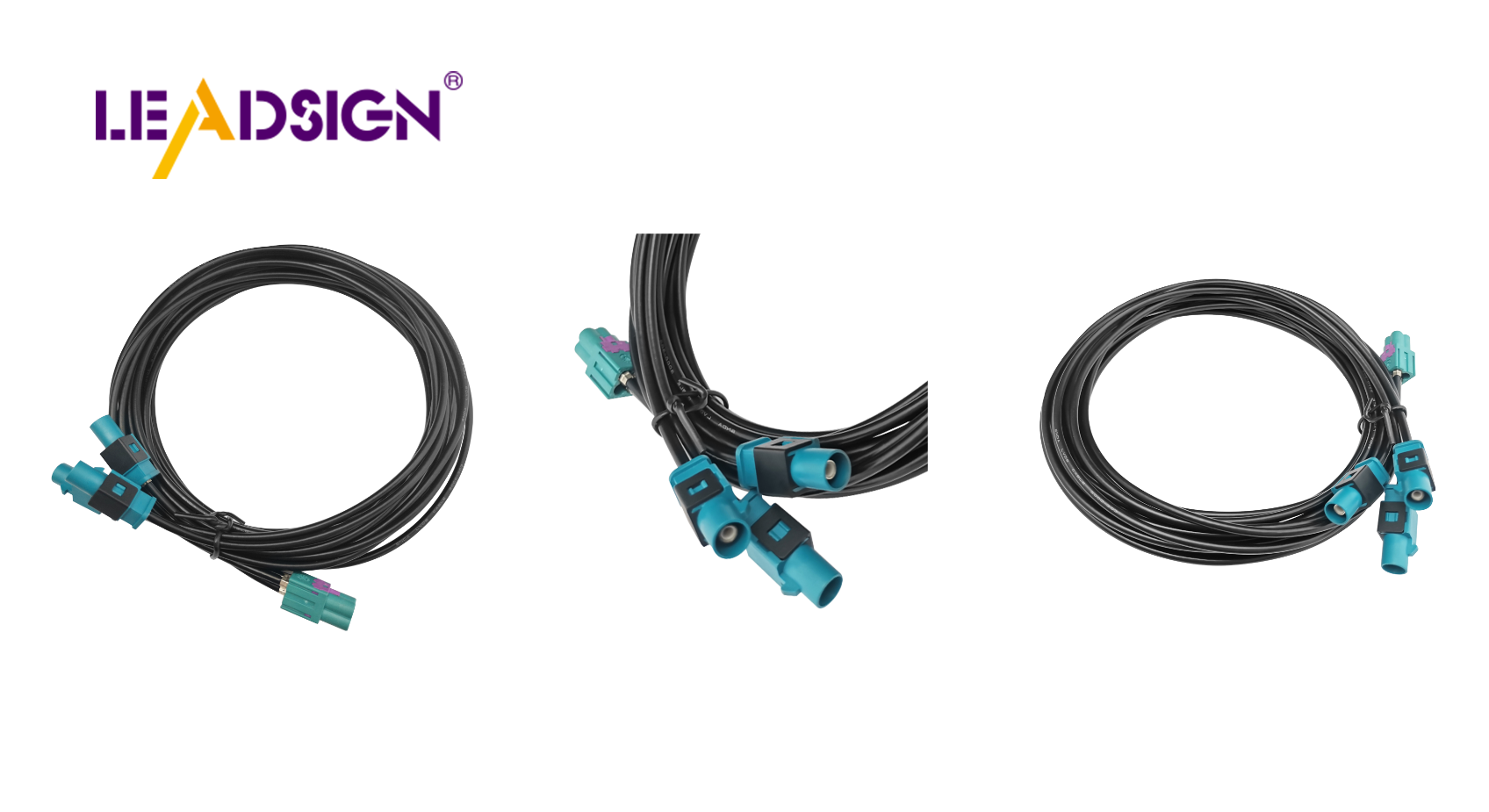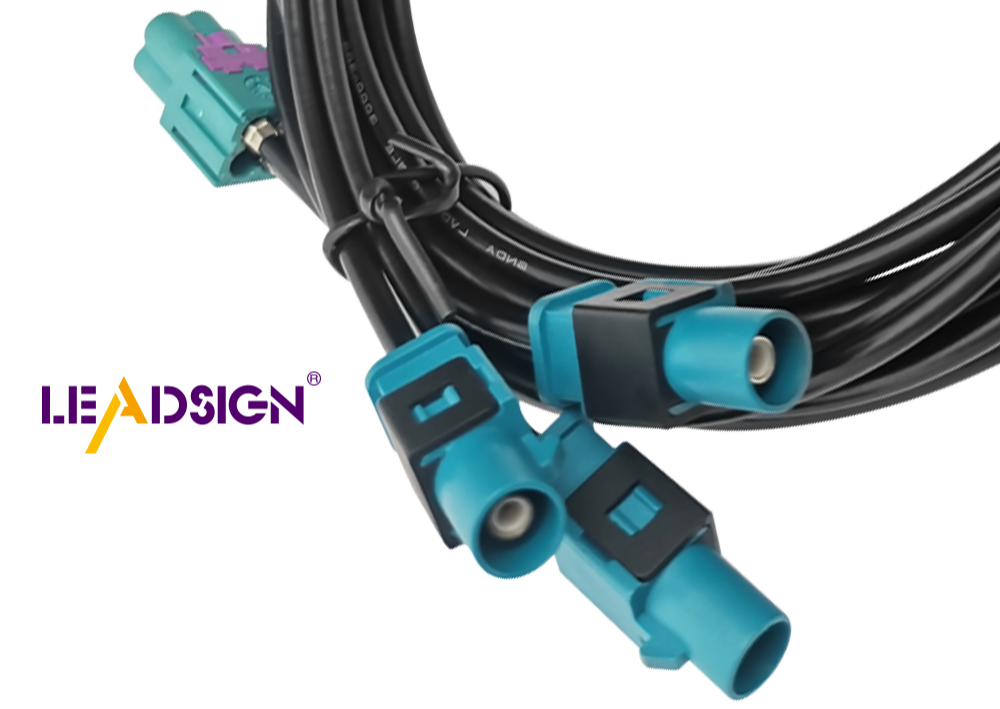How to Identify Types of Wire Connectors for Automotive Applications

Wire connectors play a vital role in automotive systems, ensuring the safe and efficient flow of electricity, which is essential for the proper functioning of vehicles. The market for automotive connectors is projected to expand significantly, from USD 7.86 billion in 2023 to USD 11.76 billion by 2031. This growth highlights the increasing demand for these components. However, selecting the appropriate types of wire connectors automotive can be challenging due to the wide variety of options available. This guide aims to assist you in choosing the best connectors and gaining a better understanding of them.
Basics of Wire Connectors
What are types of wire connectors?
Definition and Function
Wire connectors are important parts in electrical systems. They link wires together, keeping connections safe and steady. Think of them like glue for the electrical system, helping electricity move easily between parts. In cars, wire connectors keep the vehicle's electrical system working well.
Importance in Automotive Systems
In cars, wire connectors are very important. They make sure things like lights and sensors work right. Without good connectors, there could be electrical problems or safety issues. The car industry needs these connectors to be strong and reliable, even in tough conditions like heat and shaking. For more information, see evaluating wire connectors.
Common Materials Used
Metal Types
The metal used in wire connectors affects how they work. Copper, brass, and aluminum are common metals. Copper is popular because it conducts electricity well and bends easily. Brass resists rusting, so it's good where there's moisture. Aluminum is lighter than copper and cheaper, so it's used sometimes.
Insulation Materials
Insulation keeps connector metal parts safe from weather and stops shorts. Connectors often have plastic or rubber insulation. Plastic types like PVC protect against water and chemicals well. Rubber insulations bend easily and handle high heat well. Picking the right insulation helps the connector work better in different situations.
Types of Wire Connectors for Automotive

Knowing different wire connectors helps keep your car's electrical system safe. Let's look at some common types used in cars.
Crimp Connectors
Crimp connectors are liked because they are easy and reliable. You press them onto wires to make a strong bond.
Types of Crimp Connectors
Barrel Connectors: Simple and common, they fit many wire sizes.
Shrink Wrap Barrel Connectors: These seal with heat to stop water and rust.
Uses in Cars
Crimp connectors work well in old car systems. They are used when soldering is hard due to time or space limits, like in lights or radios.
Solder Connectors
Solder connectors give a lasting connection by melting solder on wires.
Pros and Cons
Pros: Great conductivity and long-lasting. Good for important connections.
Cons: Takes more time and skill. Harder in tight spots or quick fixes.
Vehicle Uses
Solder connectors are best where strength matters, like engines or shaky areas. Found in high-performance cars and custom setups.
Quick Disconnects
Quick disconnects let you easily connect or disconnect wires fast.
Features and Benefits
Features: Male and female parts snap together, come in many sizes.
Benefits: Save time during repairs, less chance of wire damage.
Common Car Uses
Found where parts need removal often, like batteries or fuse boxes. Also used in entertainment systems and driver aids.
By knowing these wire connectors, you can choose the right ones for your car's needs. Each type has its own perks for keeping your car's electric system working well.
Other Types of Wire Connectors
Knowing different wire connectors helps fix and care for your car's electric parts. Let's look at two more types often used in cars.
Blade Connectors
Blade connectors, or spade connectors, are flat metal pieces that fit into slots. They are popular in cars because they are easy to use and dependable.
Features: Blade connectors have male and female parts. The male part slides into the female slot for a firm hold. They come with or without covers, so you can choose based on what you need.
Benefits: These connectors make quick links, perfect when wires need frequent connecting and disconnecting. They work well in car lights and tight spaces.
Applications: You see blade connectors in car stereos, lights, and low-power uses. Their design makes them easy to put in and take out during fixes or upgrades.
Pin and Socket Connectors
Pin and socket connectors give strong connections for many car uses. They have a pin (male) that fits snugly into a socket (female).
Features: Pin and socket connectors are precise and reliable. They're used where shaking might mess up other connections.
Benefits: These stay connected even in tough conditions. They're built to handle shakes and temperature changes, good for engines.
Applications: You'll find these in engine systems, sensors, and key car parts. Their sturdy build is great where reliability is crucial.
By learning about these wire connectors, you can pick the right ones for your vehicle. Each type has special benefits to keep your car's electric system working well.
Picking the Right Wire Connector
Choosing the right wire connector for your car is important. It keeps your car's electrical system working well. This section will help you know what to think about and give tips for choosing.
Things to Think About
Electrical Needs
First, think about your car's electrical needs. Different connectors handle different amounts of electricity. Make sure the connector can handle the power needed. For example, connectors in engines or lights need to handle more power without getting too hot or breaking.
Environment Conditions
Think about where the connector will be used. Car connectors face tough conditions like heat, wetness, and shaking. Pick connectors with good insulation that can handle these things. Rubber insulation is good for hot places, while plastic is great against water and chemicals.
Tips for Choosing
Fit with Car Parts
Make sure the connectors fit your car parts. Check their size, shape, and pin setup to match other parts. For instance, blade connectors must fit into matching slots. This makes sure they stay connected well and don't fail.
Easy to Install
Think about how easy it is to install the connectors. Some are quick to connect, like quick disconnects, which are good for areas needing lots of changes. Solder connectors are strong but take more time and skill to put in place. Pick ones that match how skilled you are so it's easy to install them.
By knowing these things and tips, you can pick the right wire connectors for your car easily. This helps keep your car safe and running smoothly in all kinds of weather.
In this guide, you learned about different wire connectors for cars. Picking the right connector is key for your car's safety and power. Knowing materials and types helps you choose better ones.
Connectors change to meet new tech needs and tough conditions. Using this info in real life will help keep your car's electric system strong and working well.
See Also
Essential HSD Connectors for Automotive Applications
Significance of FAKRA Connectors in Auto Industry
Key Role of Fakra Connectors in Auto Sector

